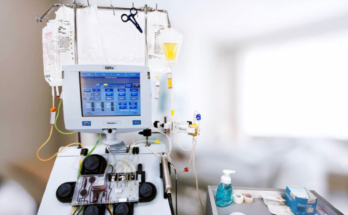
Incretins are gut derived hormones, released after the ingestion of food. Incretins are classified into glucagon-like peptide-1 (GLP-1) and gastric inhibitory peptide (GIP). Both the molecules are inactivated by enzyme Dipeptidyl Peptidase-4 (DPP-4). Oral traditional anti-diabetic drugs, often fail to maintain the desired normal level of glucose, especially in the postprandial condition. This has resulted in a strong need for better therapeutics such as incretin based drugs. Incretin not only increases the secretion of insulin by acting on pancreatic beta cells, but also inhibits the release of glucagon by acting on the pancreatic alpha cells. Incretin based drugs namely; Incretin mimetics (GLP-1 agonist) and DPP-4 inhibitors work on the antidiabetic principle of incretin hormone. Incretin based drugs reduce body weight and have better cardiovascular outcomes. The major drivers of global incretin based drugs market are increasing incidence of diabetes, rising old age population, increasing rate of cardiovascular diseases and obesity, sedentary lifestyle and increasing awareness of diabetes. Furthermore, large number of either undiagnosed or pre-diabetic patients across the globe, could further fuel the market growth. However, high cost of treatment, lack of reimbursement, poor accessibility to drugs especially in developing countries, and some safety concerns associated with incretin based drugs, are likely to restrain the market.
View Report With Complete TOC, List Of Table and Figure @ http://www.intenseresearch.com/market-analysis/world-incretin-based-drugs-market-opportunities-and-forecasts.html
The global incretin-based drugs market is segmented on the basis of drug type, formulation, and geography. On the basis of drug type, market is further segmented into Glucagon-like peptide-1 receptor (GLP-1) agonists and Dipeptidyl Peptidase-4 (DPP-4) inhibitors. According to formulation, the market is segmented into oral and injectable drugs. Geographically, the market is segmented across four regions namely North America, Europe, Asia Pacific and LAMEA.
New product launches and approvals are the few strategies adopted by top industry players. Recently GlaxoSmithKline has launched subcutaneous injection of Tanzeum (albiglutide), a GLP-1 agonist for treatment for type 2 diabetes. In March 2015, Takeda Pharmaceutical got Japanese approval for oral tablet Zafatek, a DPP-4 inhibitor. The companies profiled in the report include, GlaxoSmithKline Plc, Johnson & Johnson, Merck & Co., Inc., AstraZeneca plc, Novartis AG, Eli Lilly and Company, Boehringer Ingelheim GmbH, Takeda Pharmaceutical Company Ltd and Sanofi S.A.
KEY MARKET BENEFITS:
• Comprehensive analysis of factors that drive and restrict the growth of the global incretin-based drugs market is provided
• The market estimations are made in the report by conducting high-end analysis of the key market segments for the period of 2014-2020, which would enable the stakeholders to capitalize on prevailing Market – Opportunities
• An in-depth analysis of key segments of the market demonstrates the types of drugs and formulations that are currently being used along with the variants that would gain prominence in future
• SWOT analysis enables to study the internal environment of the leading companies for strategy formulation
• Region-wise incretin-based drugs market conditions are comprehensively analyzed in the report
Request a TOC of This Report, here @ http://www.intenseresearch.com/market-analysis/world-incretin-based-drugs-market-opportunities-and-forecasts.html#table-of-content
KEY MARKET SEGMENTS:
The global incretin-based drugs market is segmented below:
• Global Incretin Based Drugs Market – By Drug Type
• Glucagon-like peptide-1 receptor (GLP-1) agonists
• Dipeptidyl Peptidase-4 (DPP-4) inhibitors
Global Incretin Based Drugs Market – By Formulation
• Oral Drugs
• Injectable Drugs
Global Incretin Based Drugs Market – By Geography
• North America
• Europe
• Asia-Pacific
• LAMEA

